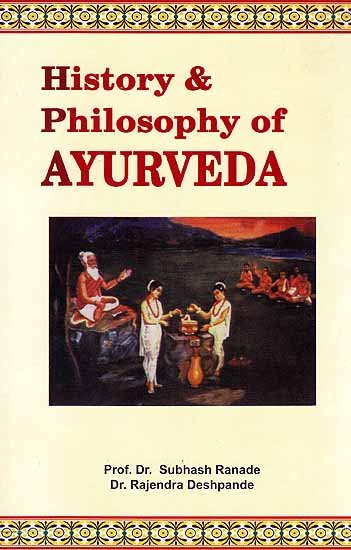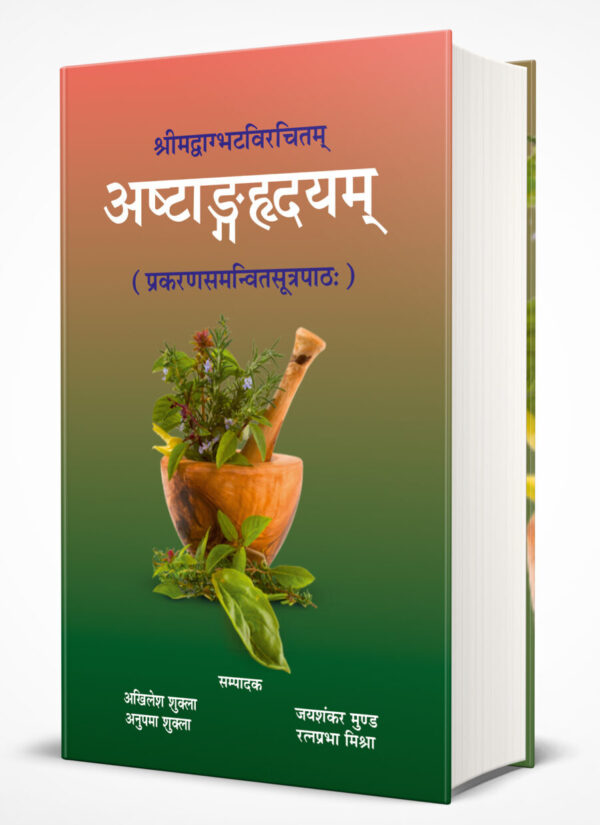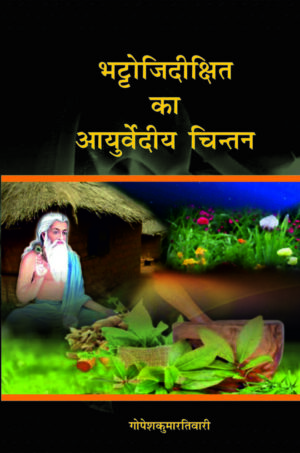History and Philosophy of Ayurveda
₹200.00
| Author-Editor/लेखक-संपादक | Dr. Subhash Ranade & Dr. Rajendra Deshpande |
| Language/भाषा | English |
| Edition/संस्करण | 2006 |
| Publisher/प्रकाशक | Motilal Banarsidass |
| Pages/पृष्ठ | 150 |
| Binding Style/बंधन शैली | Paperback |
| ISBN |

About the Book
The book deals with the History & Philosophy of the ancient healing science of Ayurveda. Both are very important subjects for beginners and for those who are interested in understanding the progress of Ayurveda. The authors have taken note of the work done by western scholars like J. Fillozat Max Muller of Germany and the recent Indian Indologists as well as historians. This book will also be appreciated by students and practitioners.
About the Author
Dr. Subhash Ranade, He is Ex. Professor & Head Dept of Ayurveda Pune University & Ex. The principal of Ashtang Ayurveda college Pune India. He is also the author of more than 90 books on Ayurveda which have been published in German Italian Japanese, Polish, English & many Indian languages. He has given many televisions and radian interviews on Ayurveda in India and abroad and has attended many international Seminars. He has the honor of being the visiting professor to both colleges of Ayurveda in the U.S and other institutes like Sewa Academie in Germany, Ateneo Veda Vyasa in Italy, the foundation of health in Poland, and Ayurveda international diffusing Association of Japan. Since 1981 he has visited and has conducted hundreds of Ayurveda courses for medical practitioners in Europe U.S.A and Japan.
Dr. Rajendra Deshpande is the head Dept of Sharira Kriya College of Ayurveda Akurdi Pune India. He is co-author of health & Disease in Ayurveda & yoga and to his credit, many radio and television interviews on various topics of health, and has also contributed scientific articles in various Journals. He has visited Switzerland, Germany, Spain, Italy & USA for the propagation of Ayurveda.
Preface
We are extremely happy to present this book for students and enthusiastic readers of Ayurveda. It is very essential that one should study the history of this great ancient healing science made progress from magic religious aspects to the present-day scientific aspect. It is also interesting to know how the education of Ayurveda developed from the ancient guru-kula system to the present day institutional education affiliated with various Universities.
Many alternative healing sciences in the world are as ancient as that of Ayurveda. However, the difference is that Ayurveda is based upon important philosophies described by various ancient sages or rishis. Our environment is full of many entities. The Universe surrounding us is also a mystery to mankind from the time immemorable. Many scientists have therefore put forward various theories to solve this riddle. These theories are famous Darshanas or ways to find the ultimate truth.
This book has been written not only for the students of Ayurveda in India but also for the students of New England Institute of Ayurvedic Medicine Boston and California College of Ayurveda and other students in Europe like Sewa Academie in Germany.
We are very fortunate that our friend and renowned Yoga teacher Mukunda Stiles has edited the entire manuscript. He has made necessary changes suitable for American and European readers. Mukunda is co-founder of American Yoga College director of Yoga therapy and Ayurvedic Yoga Therapy programs at the international Ayurvedic Institute in Boston U.S.A we are also thankful to Dr. David Frawley Director American Institute of Vedic studies. He is our friend’s philosopher & Guides for the last twenty years.
| 1 | Historical overview | 3-26 |
| 2 | Ashtanga Ayurveda | 27-34 |
| 3 | Ayurvedic Literature Charaka Samhita | 35-42 |
| 4 | Sushruta Samhita | 43-53 |
| 5 | Vagbhata | 54-59 |
| 6 | Later Ayurvedic Writers | 60-66 |
| 7 | Ayurveda and modern times | 67-77 |
| 8 | Vedic philosophy | 78-84 |
| 9 | Sankhya Philosophy | 84-90 |
| 10 | Nyaya Vaishesika | 91-102 |
| 11 | Yoga Philosophy | 103-113 |
| 12 | Purva Mimamsa and Uttara Mimamsa | 114-115 |
| 13 | Vedanta Philosophy | 116-118 |
| 14 | Non- Vedic Philosophies | 119-125 |
| 15 | Summary | 126 |
| 16 | Ayurveda in agriculture & Veterinary science | 127-130 |
| Annexure 1- Some Important Ayurvedic Journals | 132 | |
| Annexure 2- List of Ayurvedic Colleges | 133-142 | |
| Annexure 3- Bibliography | 143-144 | |
| Annexure 4- Glossary of Sanskrit Terms | 145-149 |
Only logged in customers who have purchased this product may leave a review.








Reviews
There are no reviews yet.